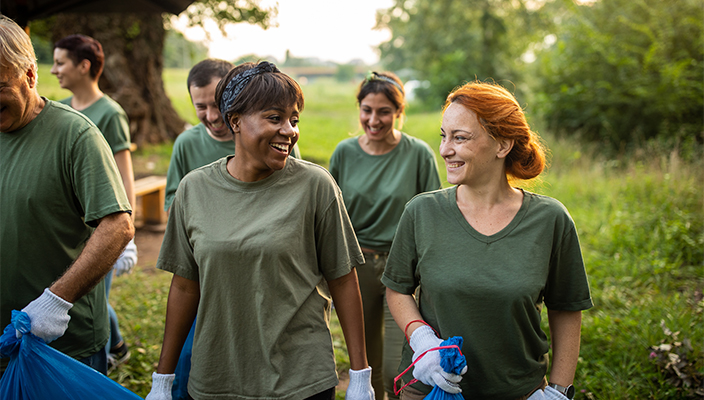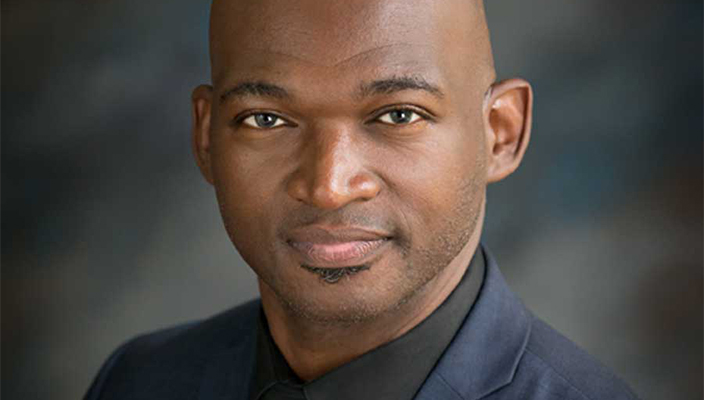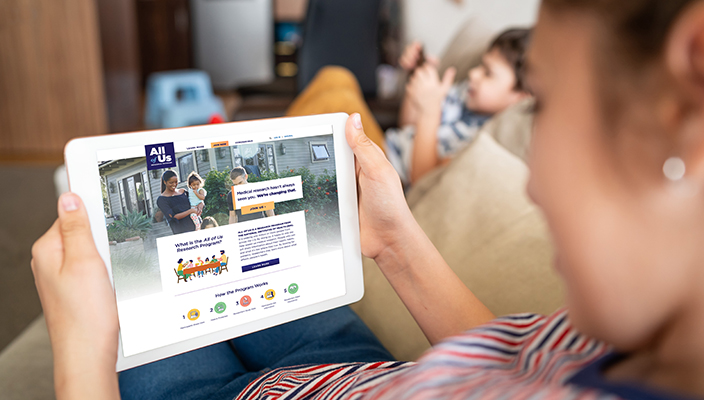Many participants sign up for the All of Us Research Program in hopes of learning about their genes. But genes are just part of everyone’s story. There’s so much more that makes you you.
That’s why we ask you to fill out surveys. Your answers go into our database, along with the other health information you generously share with the program.
By exploring the database, researchers can look for connections between your confidential survey answers and health. For example, we know that people who smoke are more prone to lung cancer. But are there factors that make some smokers more likely than other smokers to get cancer?
All of Us wants to help researchers explore what social and environmental factors contribute to health and well-being. These factors are called social determinants of health. A new survey will help us gather this information. This new survey asks about your surroundings, your support system, whether you feel safe in your environment, and other things.
Lyndsey Sickler, an All of Us Participant Ambassador and co-chair of Proud Haven, a housing resource for LGBTQIA+ individuals in Pittsburgh, has been working in the field of social determinants of health for more than two decades. Mx. Sickler points out that many research studies ask about race or age but don’t even consider social determinants of health.
People get asked about the big stuff—race, income, or sexual orientation—but not about other factors that make us who we are. “Not the fact that they were raised with an alcoholic parent, not the fact that they are a previous drug addict, not the fact that they have these other issues that impact their everyday health decisions,” Mx. Sickler says. Positive factors, like growing up in a stable home or having good friends, also influence our health.
The new survey is called Social Determinants of Health, and it might be in your portal already. It asks questions about how you get health care and what living in your neighborhood is like. It also asks about whether you’ve experienced discrimination and whether you go to church or have other spiritual practices.
The factors Mx. Sickler refers to and some questions on the survey can seem very personal. But Mx. Sickler says that’s part of the point. “I feel very strongly about how important this kind of information is, because we don’t talk about this stuff enough,” they say. “And when we don’t talk about it, we breed shame, whether or not we mean to.”
“Talking about it” in this survey means only that your answers go into the database. To protect your privacy, All of Us doesn’t share your name, birthdate, or other identifying information with researchers.
Mx. Sickler says the information the survey asks about is already affecting your health and your access to quality health care in your everyday life. For example, they mention community support: People who live in rural counties often do not have the same access to support organizations like the ones you can find in Pittsburgh or other big cities. “You’ve heard of things like food deserts. Well, there are resource deserts,” Mx. Sickler says. “Gathering this information on a national level is imperative. Because at the end of the day, it’s going to help us in the future.”
In that future, All of Us hopes to understand the larger influence that social determinants have on us. That understanding might help researchers tailor health treatments to all—to each—of us. And that is the goal of precision medicine.
Check out the list of resources for social determinants of health at the Centers for Disease Control and Prevention (CDC). Within the survey, we list more specific resources for participants who might want them. If you’re ready, you can take the survey now.
Log in to your All of Us account today.









